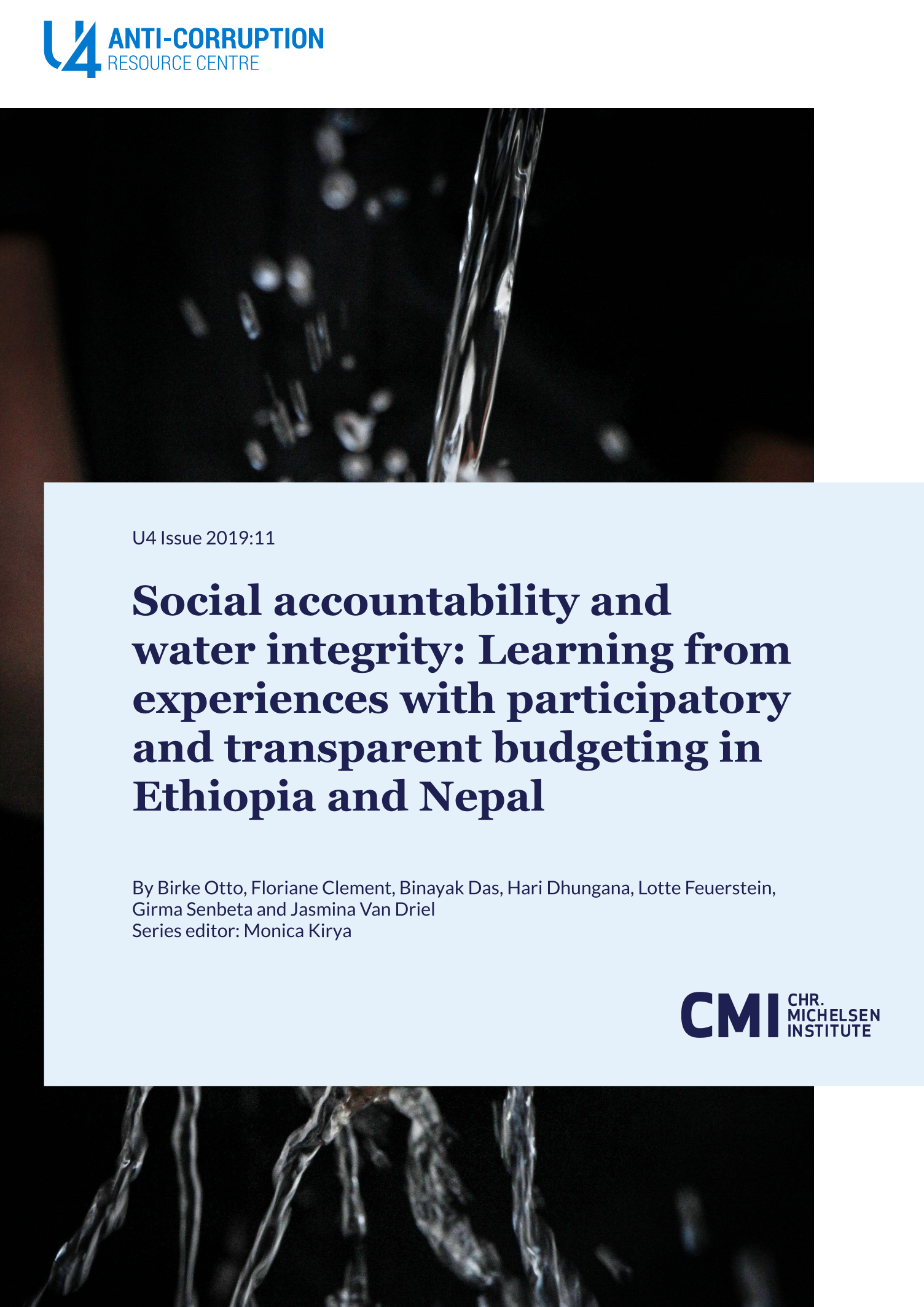Main points
- Consolidate the links between transparency, accountability, participation and anti-corruption (TAPA) to improve water integrity. One cannot take a direct and effective relationship between TAPA for granted. It is necessary to continuously examine and consolidate the links between these principles in order to make them effective.
- Appreciate deliberative capital and trust building as major outcomes. Even if they are not easy to measure, building deliberative capital (the capacity to become an outspoken critic) and trust building are important outcomes of social accountability programmes. They are preconditions for devolving power from funding agencies and governments to communities so that the communities can become critics, watchdogs, and equal partners.
- Promoting a social accountability culture creates and requires new roles, relationships, and responsibilities between all stakeholders – this takes time! Local interpretations of accountability do not always match textbook approaches, but they can often be functional in their own way. Thus, a learning approach to local people’s expectations of justice and accountability is important to define which tools are the most appropriate.



